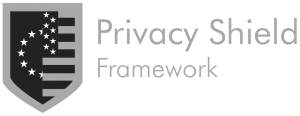What is Considered Full Auto Insurance?
Although auto insurance has been mandatory for many years, some people still don’t understand the meaning of the term full auto insurance. It does not mean that you must purchase all available coverage policies, but rather that you must purchase optional coverage policies.
FREE Auto Insurance Comparison
Secured with SHA-256
Encryption
Although auto insurance has been mandatory since many years ago, some people still do not quite understand the meaning of the term full auto insurance. It does not mean you have to purchase all the available coverage policies. In a few states, this term only means you have both PIP (Personal Injury Protection) and PD (Property Damage) coverage. To get full protection, you have to purchase optional coverage policies.
Some of the Most Commonly Purchased Coverage are Listed Below
PIP coverage:
There are only 12 states in the U.S. that implement no-fault regulation. Policyholder’s expenses for medical bills and other accident-related costs are covered by an insurance policy regardless of who is at fault in the event of a road accident. PIP coverage policy compensates for up to 80 percent of the actual medical bills and 60 percent of lost wages due to the accident. Wages lost is the amount of earnings that you lost because you are incapacitated to do your regular work because you suffered injuries from the accident. With this no-fault regulation, the injured driver is not allowed to sue the at-fault driver for suffering and pain. PIP coverage includes comprehensive, collision, and liability.
PD coverage:
As previously mentioned, Property Damage coverage protects you in case you damage another person’s property while you are driving. Only the property repair or replacement is covered. If you also cause injury to another person, the full auto insurance company does not provide a payout.
UM (Uninsured Motorist) Coverage:
The insurance company protects you from damages to your vehicle caused by the uninsured driver by purchasing this coverage. The state does not require it, but you may want to buy the policy for added protection.
Medical Payment Coverage:
Similar to UM coverage, medical payment is also a supplemental protection plan. It has been many times explained above that PIP coverage covers up to 80 percent of your medical bill. If you have Medical Payment coverage, however, the remaining 20 percent is also covered. The medical payment policy comes first to cover medical bills. So the amount of money you have in your PIP coverage will only be used to cover the lost wages until the benefits of Med-Pay run out. In other words, you can save PIP coverage for better-lost wages reimbursement.
Bodily Injury:
This coverage is another optional policy. It is not required to drive legally in a few states, but you must purchase this if you have been convicted of DUI before.
Both UM and Med-Pay are supplemental protection plans. Each of them will add to the total amount of premium fees you need to pay.
There are probably options provided by full auto insurance companies concerning the minimum amount of coverage and deductible. You can still purchase the optional coverage without adding too much to the total cost. The optional coverage can be a tiny amount, but it indeed is an excellent way to make sure that everyone around you is always well-protected on the road.
Limitations to Full Auto Insurance
Even though it says “full auto insurance,” some things are not covered by auto insurance companies. No policy provides protection for your damaged properties in the event of an accident in which you are not at fault.
Please remember that Personal Damage only gives a payout for another person’s property. In this case, you are allowed to claim damages from the person at fault. In some cases, you are probably entitled to medical expenses for the amount that is not covered by your PIP coverage. To be eligible for such benefit, the person at-fault must have BI (Bodily Injury) liability insurance.
FREE Auto Insurance Comparison
No matter how much car insurance you need, compare quotes direct from auto insurance providers nationwide
Secured with SHA-256 Encryption




